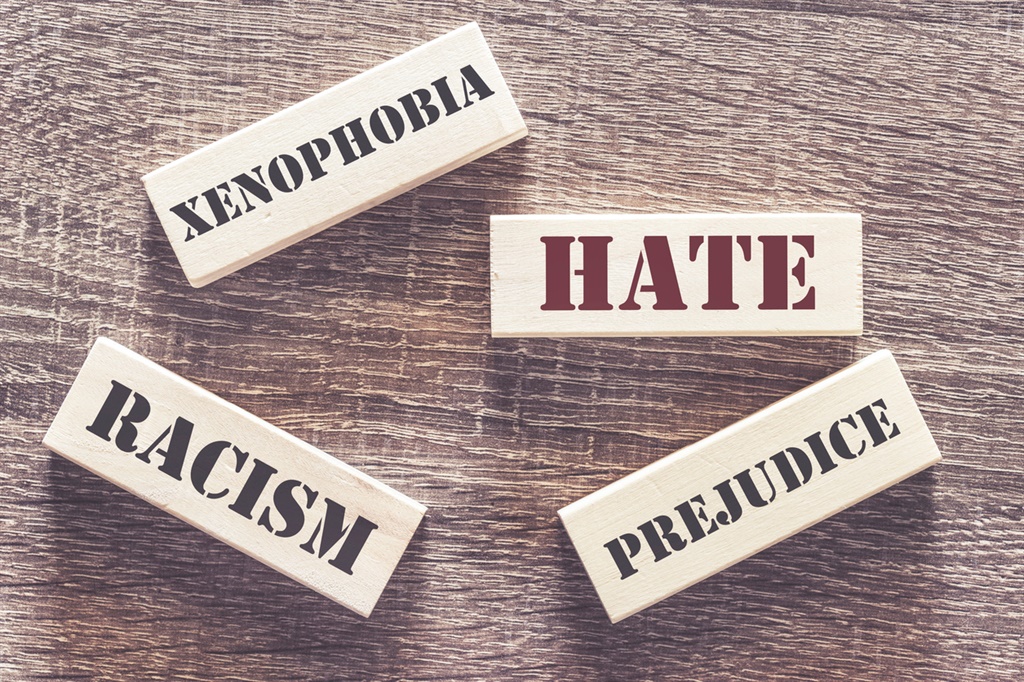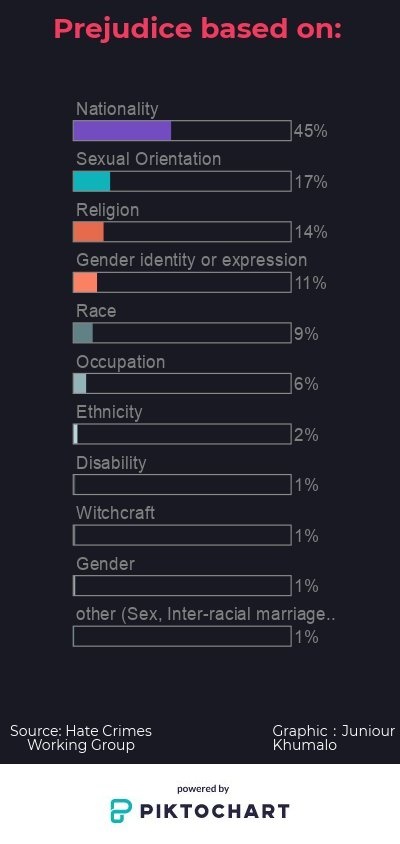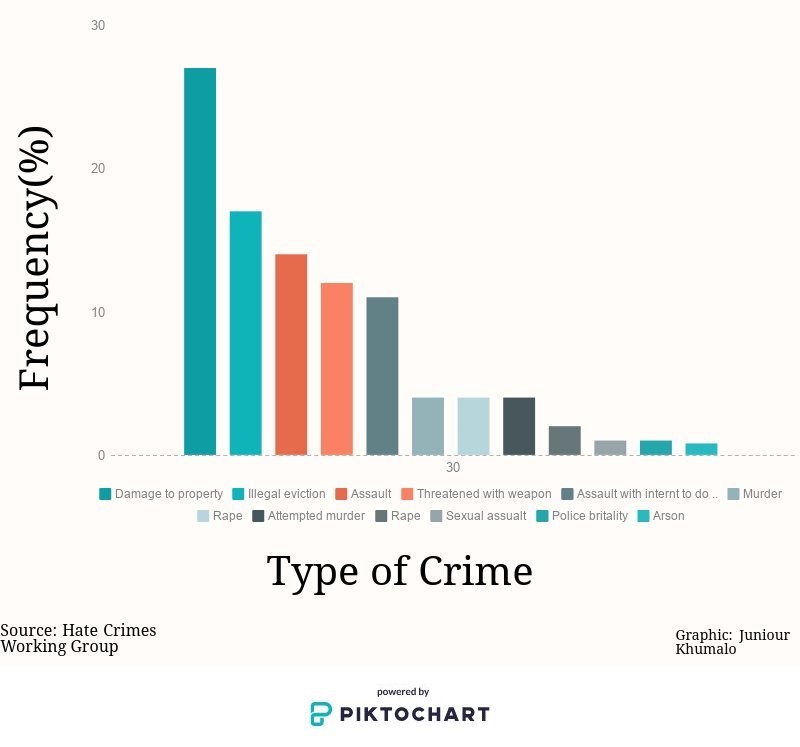
A woman who was raped because of her sexual orientation ... a 21-year-old man who was maimed because he was not a South African national.
These are two of the people that researchers interviewed over the past five years while compiling a report on hate crimes and discrimination in South Africa.
It’s been a rough ride for all involved. There were tears of sorrow and frustration during the release of the report on Thursday, especially in light of the knowledge that the department of justice has been sitting on the hate crimes bill since 2016 without passing it into law.
The Hate Crimes Working Group released its five-year report on Thursday in an attempt at forcing the department’s hand.
The group, a multi-sectorial network of civil society organisations that covers a cross-section of vulnerable sectors and people at risk of becoming victims of prejudice-motivated attacks, collaboratively compiled the study into hate crimes and discrimination across South Africa. The study focused on five provinces namely, the Eastern Cape, Gauteng, KwaZulu-Natal, Limpopo, and the Western Cape.
“The Eastern Cape, Gauteng and KwaZulu-Natal were obvious choices due to their size and the availability of civil society groups who were our main source of data collection. We also included Limpopo and the Western Cape to get more realistic findings,” said Yolanda Mitchell, a researcher with Ubora Research Solutions, responsible for putting together this report.
Speaking at the Johannesburg Holocaust and Genocide Centre, where the report was released, Mitchell explained that, going into the project, she was excited but now finds it “difficult to speak on the topic as I have gotten to meet the people behind the statistic”.
“I met a lesbian who was raped because of her sexual orientation … and I can never forget the eyes of a 21-year-old man whom I met. On him were burn wounds sustained in an attack on his spaza shop two day [prior to the meeting] because he was not a South African national,” said a tearful Mitchell to a room full of sympathetic civil society affiliates and journalists.
Professor Juan Nel, who presented a summary of the report with Mitchell, added: “When it comes to hate crimes, some people and communities are targeted more than others but we are all affected by them one way or the other.”
Even though the department of justice and constitutional development has spearheaded the development of a draft national action plan to combat racism, racial discrimination, xenophobia and related intolerance, human rights lawyers Sanja Borman, who is also the Hate Crimes Working Group’s steering committee chair, said: “It is not enough. We need legislation to assist us to monitor hate crimes, it will also help in letting people know what avenues of recourse to take.”
According to Borman, there has been a lot of frustration from civil society organisations on the time it’s taken the department of justice to pass the hate crime bill into law.
Mitchell explained that “hate crime happens in a context of systematic segregation” and one of its major proponents was hate speech. She mentioned political leaders’ comments on migrants and how that led to hate crimes on foreign nationals in South Africa.
Findings of the report
“The study found that two out of three cases of hate crimes are not reported to the police. Also, civil society, chapter nine and statutory organisations received more reports of hate crimes than the SAPS,” said Mitchell.
“In terms of perpetrator characteristics we noted that hate crimes are mostly committed by people known to the victim as well as community members of the victim,” explained Mitchell.
Since offenders are usually in a group, which might include children or underage offenders this makes such crimes hard to process. And also civil society seldom notes offender details to establish quantifiable statistics on hate crimes.
Recommendations of the report
• Monitoring and recording hate crimes
• Developing guidelines for responding to hate crimes; and
• Getting the hate crime bill passed as law.




 Publications
Publications
 Partners
Partners










